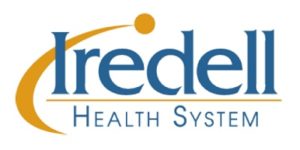
Special to Iredell Free News
When you are pregnant or have just become a new mother, you may receive a lot of advice about breastfeeding from family, friends, or even online. Some of this advice may make you question whether breastfeeding is right for you. It can be hard to distinguish the myths from the facts.

However, it’s important to remember that breastmilk is the perfect milk for your baby, and breastfeeding offers many health benefits for the mother and the baby. Rhea Lamb, lactation consultant at Iredell Health System, has supported new mothers for many years, answering all their questions and concerns about breastfeeding. In most cases, new moms are able to breastfeed successfully with support and education.
August is National Breastfeeding Month – the perfect time to learn more about the benefits of breastfeeding and answer some of the common questions and misconceptions surrounding breastfeeding.
Benefits of Breastfeeding
Breastfeeding offers many benefits for a new mother and their baby. Breastmilk contains all the nutrients and vitamins a baby needs to grow and develop.
“There are immunoglobins in the breastmilk that help form a protective coating that shields the baby’s esophagus, gut, intestines, and even the baby’s ear canals. It also helps prevent infection in the baby and activates the baby’s immune system. Babies who are breastfed typically have less respiratory, gut, and ear infections,” said Lamb.
According to Lamb, breastfeeding can also protect babies against some short- and long-term diseases like diabetes and obesity.
“It’s believed that the risk-reduction of diabetes and obesity is due to self-regulation. For instance, when you’re bottle-feeding, the milk pours out of the bottle, and a lot of times, the child is less likely to stop the feeding when fullness should have occurred. But with breastfeeding, the baby has to more actively participate in the feeding, so when they become full, they typically stop, and the milk slows down or stops,” said Lamb.
In addition to providing health benefits for the baby, breastfeeding is also beneficial for the mother.
“Breastfeeding can reduce a mother’s risk of breast cancer, uterine cancer, and ovarian cancer. The mom also has a reduced risk of diabetes and osteoporosis. One of the immediate benefits for mom is that breastfeeding also helps reduce the risk of hemorrhaging, or bleeding too much, after birth,” said Lamb.
Additionally, breastfeeding has the benefit of convenience. Mothers can breastfeed anytime without having to mix formula or prepare bottles.
“New moms also save money from breastfeeding. The average cost of formula for one year is about $2,500 for one infant,” said Lamb.
Addressing the Misconceptions
Though breastfeeding offers many benefits, there are still some misconceptions that surround it. Below, Lamb addresses a few of the most common myths.
Myth #1: Breastfeeding always comes naturally to new moms.
Lamb: This is not necessarily true. It can come naturally for some. But for most moms, there’s a need for guidance and education. It may have come more naturally to earlier generations, where everyone breastfed and it was well-represented and seen everywhere. Now, in this day in time, that’s not necessarily the case, and women do sometimes require more education and support. A mom may be diligently trying to breastfeed but she may not have people in her immediate circle that have done that.
Iredell Memorial Hospital does an exceptional job with support because we do not charge for lactation services. Whether it’s in The Birth Place to check on moms or after they go home. After they go home, they are welcome to come to the Women’s Health Center, where I have an office and can provide them with outpatient lactation follow-up and support. Pediatricians call us and use our services as well to help do additional follow-ups for breastfeeding moms. You do not have to have your baby at Iredell Memorial to use these free services. We have moms from out of town. I feel blessed to be able to help others in the community, as this type of free service is actually quite unheard of.
Myth #2: It’s normal for breastfeeding to hurt.
Lamb: It is not normal for breastfeeding to hurt. Occasionally, when you first begin breastfeeding, it can feel uncomfortable, but there is a difference between uncomfortable and pain. A lot of times, there is some discomfort just learning to have a baby on your breast because you are not used to that, so it may be tender. Anything beyond tender that goes into the realm of pain is considered an abnormal finding, and you should be seeking help.
Positional changes of the breast or an evaluation of the baby’s oral cavity can be helpful in this situation. Sometimes, it has nothing to do with what the mom is doing, but it could be that the baby has a lip or tongue tie or some other issue. But most of the time, it’s a simple positional change.
Myth #3: You should only eat plain food while breastfeeding.
Lamb: This is untrue. I see moms who eat all different kinds of food — onions, peppers, spices — and their baby is thriving and doing beautifully with breastfeeding. Occasionally a baby can have a little bit of a tummy upset, and usually, that has to do with over-milk consumption, not the type of food the mother eats.
Myth #4: You can never use formula if you want to breastfeed.
Lamb: That is untrue as well. Some mothers do not make enough breastmilk to fully feed their baby, so they may have to do a combination of formula and breastfeeding. Some moms decide they’re going to breastfeed when they are at home with their baby and use formula in between.
However, it’s a good idea to talk to a lactation consultant so you can do that safely because if you just stop breastfeeding cold turkey, then you can end up with engorgement. It’s good to work out a going-back-to-work plan in this way too. But, yes, you can use both formula and breastmilk, and some mothers have to.
Myth #5: You can’t take any medication if you’re breastfeeding.
Lamb: You do not have to stop all your medications because you are breastfeeding. If you contact your pediatrician or lactation consultant, they can look at your medications as far as safety is concerned. Most medications are safe while breastfeeding, but your doctor can help you find a safe alternative if not.
Myth #6: You can’t breastfeed while you are sick.
Lamb: Most moms are able to breastfeed while they are sick. Occasionally, breastfeeding can get interrupted if the mother’s illness makes her not capable of breastfeeding. It’s up to the mom to see if she feels like she is able. But there are alternatives. I’ve also assisted moms after having major surgeries, and they are oftentimes able to breastfeed or pump. Because breastmilk is protective against so many things, stopping breastfeeding and breast milk altogether may remove the protective benefit it has for that child. If there’s some type of respiratory ailment that the mother is worried about, or if she feels like she may sneeze on her baby, the mother can always put a face mask on while she is breastfeeding. Good handwashing is always a good idea before breastfeeding as well.
Myth #7: You won’t be able to sleep enough if you breastfeed.
Lamb: Initially, when going home with a new baby, your sleep is interrupted. It goes without saying. With breastfeeding, babies do wake up frequently, but they tend to settle very well. One thing about breastfeeding that a lot of moms don’t know is that when a mom breastfeeds a baby, hormones are released in the mom that causes her to become sleepy. A lot of moms, after they breastfeed, talk about how sleepy they’re beginning to feel. They tend to feel like lying down and going to sleep. I’ve worked third-shift at The Birth Place and witnessed this many times.
LEARN MORE
Should you choose to breastfeed your baby, Iredell Health System offers free lactation services with Rhea Lamb. Lamb hosts Zoom classes the first and second Tuesday of every month at 6:30 p.m. In-person classes are offered on the second Tuesday of the month at 10:30 a.m. To learn more about Iredell Health System’s free lactation services, please call 704-878-4555.
About Iredell Health System
Iredell Health System includes Iredell Memorial Hospital; Iredell Mooresville; two urgent care centers; Iredell Home Health; Iredell Wound Care & Hyperbaric Center; Community and Corporate Wellness; Occupational Medicine; the Iredell Physician Network and more. Iredell Memorial Hospital is the largest and only nonprofit hospital in Iredell County. The comprehensive healthcare facility has 247 beds; more than 1,800 employees; and has 260 physicians representing various specialties. Centers of excellence include Women’s and Children’s; Cardiovascular; Cancer; Surgical Services and Wellness & Prevention. The Health System’s second campus, Iredell Mooresville, is home to the area’s only 24-hour urgent care facility, as well as an ambulatory surgery center, imaging center, rehabilitation services, and physician practices. The mission of Iredell Health System is to inspire wellbeing. For a comprehensive list of services and programs, visit www.iredellhealth.org.



